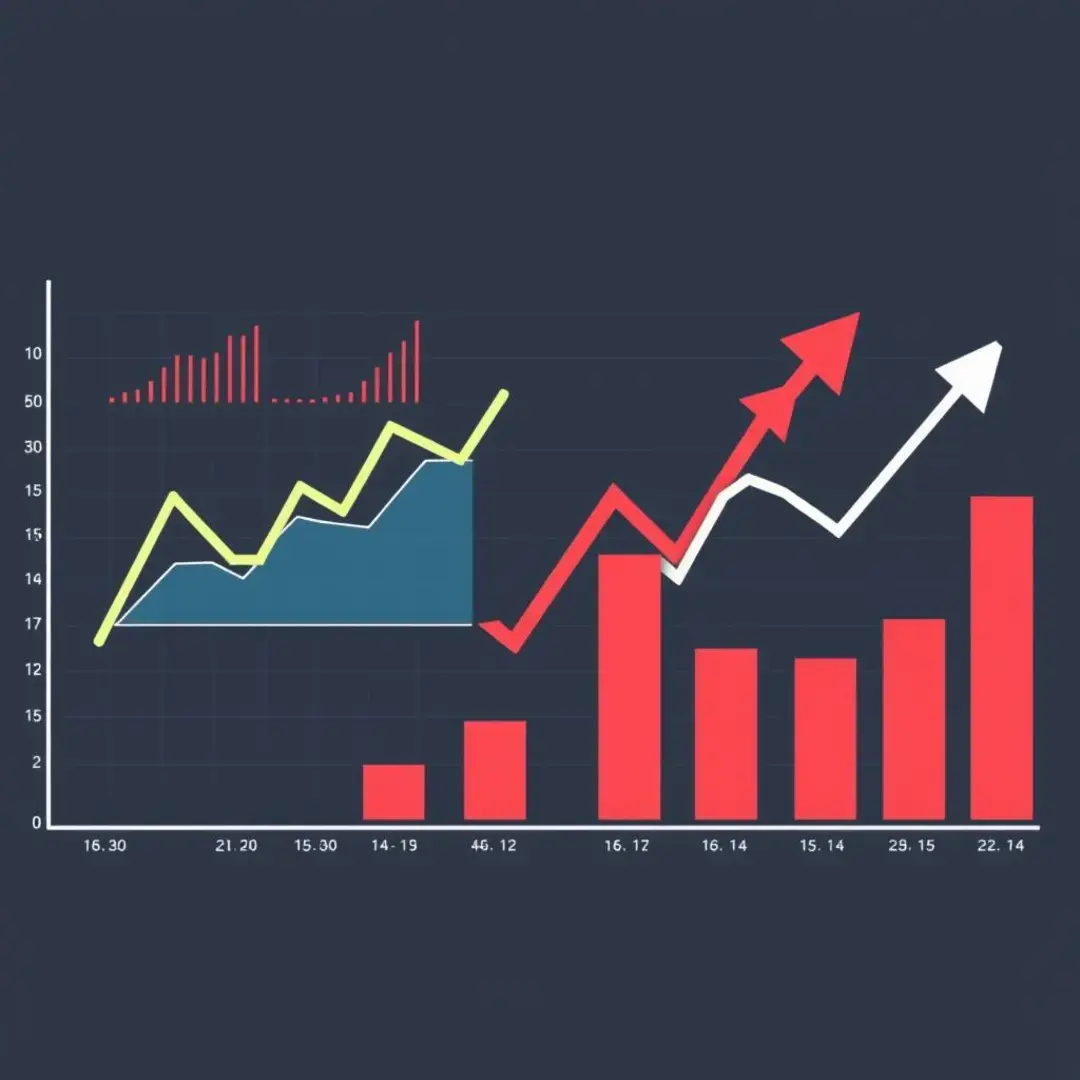Identifying Arbitrage Opportunities in the Market
Understanding market arbitrage

What is arbitrage?
Arbitrage is the practice of taking advantage of a price difference between two or more markets. Essentially, it is the simultaneous purchase and sale of an asset to profit from an imbalance in price. This concept not only applies to stocks, but also extends to a variety of assets including currencies, commodities, and derivatives. By exploiting these price discrepancies, traders can lock in profits with relatively low risk, provided they execute their trades simultaneously.
Pure arbitrage refers to simultaneous buying and selling of identical or equivalent assets in different markets to take advantage of differing prices. This type of arbitrage is seen as the most straightforward form, requiring precise timing and execution to ensure that market inefficiencies are exploited before they correct. Pure arbitrage opportunities tend to be short-lived, so speed is of the essence for traders seeking to capitalize on these fleeting chances.
On the other hand, statistical arbitrage uses statistical methods and quantitative models to identify trading opportunities. This approach often employs historical data to forecast expected price movements, allowing traders to exploit mispricings based on statistical probabilities rather than mere price differences. While it is a more complex strategy than pure arbitrage, it can yield significant profits over time, though often with a higher level of risk.
Types of arbitrage
Geographic arbitrage takes advantage of price differences across different locations. For instance, if an asset is priced lower in one country compared to another, traders can purchase the asset in the lower-priced market and sell it in the higher-priced market. This type of arbitrage is common in the forex market where exchange rates may vary between different countries due to economic conditions.
Similarly, cross-border arbitrage involves taking advantage of price differences in different countries. This could involve not just currency trading but also equities or commodities, which might be undervalued in one national market compared to another. Regulatory frameworks and transaction costs must be considered in this arbitrage strategy, as they can significantly affect profit margins.
Triangular arbitrage is a more complex strategy that involves three different currencies. Traders exploit discrepancies between currency pairs in the forex market. For example, if there are inconsistencies in exchange rates, a trader can exchange currency A for currency B, then convert currency B to currency C, and finally swap currency C back to currency A, ideally for a profit due to the pricing inefficiency between the three currencies.
Advanced arbitrage strategies

Risk arbitrage
Merger arbitrage is a form of risk arbitrage that focuses on the vulnerabilities associated with mergers and acquisitions. Traders will buy shares of a company that is being acquired while simultaneously shorting shares of the acquiring company. This strategy aims to capitalize on the spread between the acquisition price and the current market price, banking on the completion of the merger for profit.
Liquidation arbitrage occurs when a trader invests in companies that are under liquidation. These companies may sell their assets at prices lower than their actual value, presenting an opportunity for a savvy investor to purchase and resell those assets at a higher price. While this strategy can yield significant gains, it requires careful analysis and understanding of the liquidation process to mitigate risks effectively.
Volatility arbitrage
Implied volatility arbitrage is a strategy that seeks to profit from the discrepancies between the implied volatility of options and the expected future volatility of the underlying asset. Traders can simultaneously buy and sell options where they believe the market has mispriced the volatility, thereby capitalizing on the price disparity. This strategy is particularly effective in markets with significant news events that can affect an asset’s volatility.
Conversely, realized volatility arbitrage focuses on the actual price fluctuations of the underlying asset. Traders utilize models that predict future volatility, comparing these predictions with the asset’s historical volatility. If a discrepancy is identified, traders will act either to benefit from the anticipated volatility shifts or protect themselves against potential losses.
Identifying arbitrage opportunities

Analyzing market data
To effectively identify arbitrage opportunities, traders must leverage analytical skills and sophisticated statistical models. This process involves monitoring various markets and applying statistical analysis to understand price movements better. By employing techniques such as regression analysis or machine learning algorithms, traders can build a framework to identify potential arbitrage scenarios that others may overlook.
Identifying pricing discrepancies across different asset classes is crucial for arbitrage traders. This often requires constant monitoring of price feeds and comparative analysis under different market conditions. By staying alert to sudden changes or irregularities, traders can seize the moment to execute trades before the market corrects itself.
Developing arbitrage trading systems
In today’s highly competitive environment, many traders develop automated trading systems designed to detect and exploit arbitrage opportunities instantaneously. Sophisticated algorithms can analyze vast amounts of data much faster than any human, executing trades within milliseconds. This capability is vital, as it allows traders to capitalize on fleeting opportunities that may vanish before manual execution can occur.
Once an arbitrage trading strategy is developed, it is critical to backtest and optimize the system. By simulating trades against historical data, traders can refine their strategies to improve performance and reduce risk. This process not only validates a trading plan’s effectiveness but also identifies areas for improvement that can lead to increased profitability in the long run.
Managing arbitrage risks

Market risk
Market risk is a significant concern in arbitrage trading, especially when market conditions fluctuate unexpectedly. Traders may encounter liquidity risk when they are unable to buy or sell assets without substantial price changes. To mitigate this risk, it is essential to monitor trading volumes and choose markets with sufficient liquidity to prevent disruptions in executing trades.
Execution risk arises from delays in executing trades due to market volatility or counterparty issues. Slow execution can undermine the effectiveness of an arbitrage strategy, causing a trader to miss the opportunity altogether. Developing systems that minimize execution time and automate trading can help traders manage these risks more effectively, ensuring they can act swiftly on identified opportunities.
Counterparty risk
Counterparty risk is another important consideration, as it refers to the chance that the other party in a transaction defaults. This risk can lead to significant losses, especially in high-leverage positions. To mitigate credit risk, traders should conduct thorough due diligence on their counterparties and consider using reputable exchanges and financial institutions.
Settlement risk occurs when one party fails to deliver the asset as agreed upon in a contract, leading to potential losses. This risk is heightened in volatile markets where prices can fluctuate dramatically between the time a trade is executed and when it settles. Effective risk management strategies, including monitoring settlement processes and considering collateral requirements, can help limit exposure to settlement risk.
Exploiting arbitrage opportunities in different markets

Forex arbitrage
In the forex market, spot market arbitrage presents options for traders to capitalize on immediate pricing inefficiencies. This type of arbitrage is particularly attractive due to the high liquidity in the forex market and the voluminous trading observed. Traders can leverage real-time data feeds across different exchanges to find and capitalize on these discrepancies rapidly.
Forward market arbitrage involves the use of forward contracts to exploit differences in the forward rates of currencies. Traders can lock in rates that differ from the spot prices, creating an opportunity to profit when these rates converge. This strategy requires a deep understanding of market dynamics and the ability to anticipate movements accurately.
Commodity arbitrage
In commodity trading, futures market arbitrage allows traders to exploit price discrepancies between the spot market and futures contracts. By buying commodities in the spot market and selling them in the futures market, traders can secure profits as prices converge over time. This strategy requires a careful analysis of supply and demand factors to predict future price movements accurately.
Options market arbitrage involves exploiting mispricing in the options markets, allowing traders to buy low and sell high. This can often occur due to discrepancies in implied volatility or changes in market sentiment. Traders who can identify these opportunities can benefit significantly from the differences in option pricing, provided they act swiftly before market forces correct the mispricing.
Conclusion: maximizing profits through arbitrage

Key takeaways for advanced traders
For advanced traders, identifying and capitalizing on arbitrage opportunities requires both theoretical knowledge and practical skills. Understanding market mechanisms, employing analytical tools, and developing efficient trading strategies are all critical elements for success in this arena. Additionally, staying aware of market changes and technological advancements can provide traders with a competitive edge.
To maximize profits from arbitrage, traders should prioritize continuous learning and adaptation. Building a robust trading plan that includes risk management protocols, regular performance reviews, and optimization of trading systems is essential. Engaging with the trading community for insights and sharing best practices can also enhance one’s arbitrage trading acumen.
As technology continues to advance, the future of arbitrage trading looks promising. The rise of AI and machine learning is set to revolutionize how traders identify risks and opportunities across various markets. Those who can leverage these advancements will likely have a significant advantage in the increasingly competitive landscape of arbitrage trading.












